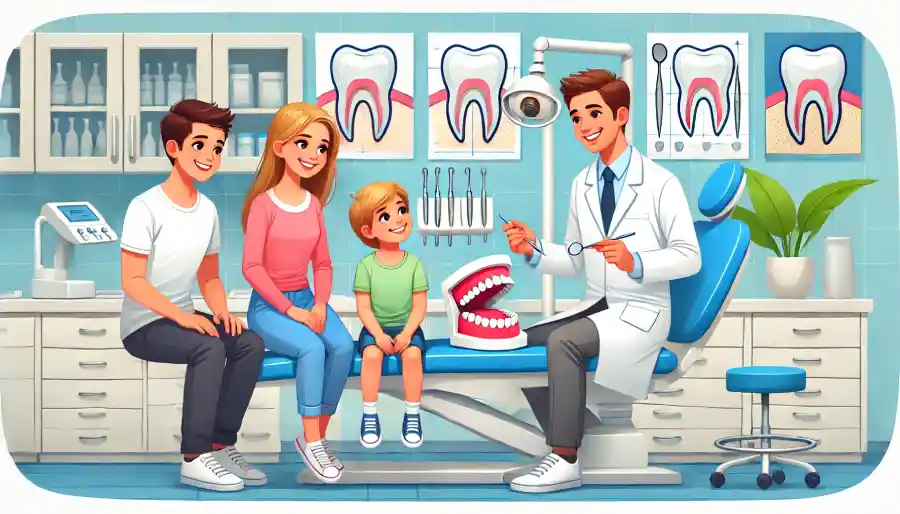Maintaining Optimal Dental Health: Tips for Every Family
Key Takeaways:
- Proper dental hygiene is crucial for overall health.
- Healthy habits and regular check-ups can prevent major dental issues.
- Understanding the basics of dental care helps in making informed choices.
The Importance of Dental Health
Dental health is not just about having a sparkling smile; it’s integral to your overall health and well-being. Untreated oral diseases can lead to severe health complications like cardiovascular issues, diabetes, and even infections. Dental problems can cause significant discomfort, affect your ability to eat and speak, and decline your quality of life. Therefore, maintaining oral health isn’t merely an aesthetic concern but a pressing health necessity.
Choosing the right dental plan also plays an essential role in ensuring comprehensive care. By opting for a dental PPO, families can enjoy the flexibility of selecting their preferred dentists and getting coverage for various procedures. This flexibility makes it convenient to keep up with regular dental visits, which is fundamental to long-term oral health.
Creating a Daily Dental Care Routine
A good daily dental care routine is your first defense against oral health issues. Here’s a comprehensive guide to establishing an effective routine:
- Brush Your Teeth: Use fluoride toothpaste to brush your teeth at least twice daily. Make sure to brush for at least two minutes each time, focusing on all surfaces of your teeth.
- Floss Daily: Flossing removes plaque and food particles that a toothbrush can’t reach. FlossingIt’s critical to maintaining gum health at least once a day.
- Use Mouthwash: Incorporate a mouthwash that can kill residual bacteria and freshen your breath. Rinsing helps reach areas that may remain untouched by brushing and flossing.
- Replace Your Toothbrush: To ensure effective cleaning, replace your toothbrush every three to four months or sooner if the bristles are frayed.
Incorporating these habits into your daily routine can significantly reduce the risk of cavities, gum disease, and other dental issues.
How Nutrition Impacts Dental Health
What you eat plays a crucial role in your dental health. Nutrient-rich foods strengthen teeth and gums, while sugary foods and drinks can expedite the development of cavities. According to Healthy Eating Tips, a balanced diet includes essential nutrients like calcium, vitamin D, and phosphorus, vital for maintaining strong teeth.
Calcium-rich foods like dairy products, almonds, and leafy greens help fortify teeth. Vitamin-rich fruits and vegetables like oranges, carrots, and celery provide necessary vitamins and help clean teeth naturally due to their fibrous nature. Conversely, sugary snacks and beverages can erode the enamel, leading to cavities, especially if consumed frequently and without brushing afterward.
The Role of Preventive Dental Check-Ups
Regular dental check-ups are not just recommended but necessary for prolonged oral health. Routine visits to your dentist can help catch potential issues before they become problematic. It would be best if you visited your dentist at least twice yearly for routine cleanings and exams.
During these visits, dentists can identify early signs of issues such as gum disease, cavities, or even oral cancer. Addressing these problems early can prevent more severe complications in the future. Professional cleanings also remove plaque and tartar that regular brushing and flossing might miss, further safeguarding your dental health.
Educating Kids on Dental Hygiene
Early on, teaching children about good dental hygiene sets a foundation for lifelong healthy habits. Kids are more receptive to getting into a routine if they understand its importance and if it’s made fun for them. Here are some tips for teaching kids about dental hygiene effectively:
- Lead by Example: Children often mimic their parents. Please show them your dental routine and emphasize its importance.
- Make it Fun: Use colorful toothbrushes and toothpaste with flavors that appeal to children. Interactive apps and songs can also make brushing time enjoyable.
- Educate: Teach them about the “sugar bugs” and how brushing helps get rid of them. Use visual aids and stories to explain the importance of dental hygiene.
- Positive Reinforcement: Praise and rewards can motivate children to maintain their dental routine.
Regular dental visits should also be part of their routine. Familiarize them with the dentist’s office to reduce anxiety and make the visits comfortable.
Managing Dental Anxiety
Dental anxiety is a common issue affecting both adults and children. Overcoming this anxiety is crucial for maintaining regular dental visits. Here are some effective strategies for managing dental anxiety:
- Find a Comforting Dentist: Look for a dentist who understands and addresses dental anxiety. A comforting and understanding dentist can make a significant difference.
- Communication: Share your fears with your dentist. Open communication allows the dentist to take steps to ease your anxiety.
- Relaxation Techniques: Practice deep breathing or other relaxation techniques before your appointment. Listening to calming music or using stress-relief tools can also help.
- Bring Support: Having a friend or family member accompany you can help provide emotional support and reduce anxiety.
These strategies make dental visits less stressful, allowing you to maintain regular appointments and ensure ongoing dental health.
Dental Insurance Considerations
Having a comprehensive dental insurance plan can significantly improve your management of dental health costs. Understanding the specifics of your plan ensures you maximize its benefits. Dental insurance plans often cover preventive care, essential for long-term oral health.
When choosing a dental insurance plan, consider coverage for preventive, primary, and primary procedures, annual maximums, and network dentists. Picking a plan that meets your family’s unique needs can make dental care more accessible and affordable. Regular preventive care visits covered by insurance can help detect issues early, saving you from higher costs and treatments in the future.
Conclusion
Maintaining good dental health involves a combination of daily care, healthy eating, regular check-ups, and effective management of dental anxiety. By taking a proactive approach and integrating these habits into your family’s routine, you can ensure that your family enjoys optimal oral health now and in the future. Proper knowledge and practices can significantly improve dental health, benefiting overall well-being.

